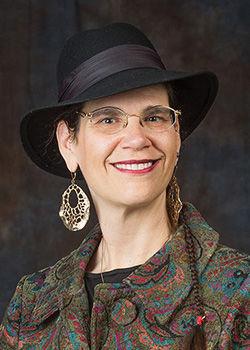Our Torah portion is so full of "highlights" and stories that create "bestsellers" that the first verse of our portion, "And Ya'akov leaves Be'er Sheva, and goes to Charan" seems to get lost before you even know that it existed.
It is bound to a perplexing moment for the Piasetzna rebbe (Rabbi Klonimus Kalman Shapira of Piasetzna 1888-1943) when he reads "And Ya'akov awoke from his sleep and said, 'Indeed God is here and I did not know!" (Breishit/Genesis 28:16). Perplexing not because of the fact that Ya'akov woke up from a dream in which God revealed Godself to him, but rather for the nature of his proclamation, when knowing the reason that led Ya'akov to the location of the dream in the first place!
When the Babylonian Talmud (Chulin 91b) comments on the opening verses of our Torah portion, "And Ya'akov leaves Be'er Sheva, and goes to Charan; and he encounters the place [Makome] and sleeps there..." it offers the following reading: "When Ya'akov reached Charan he said [to himself], 'Shall I have passed through the place where my fathers prayed and not have prayed too?' He immediately resolved to return, but no sooner had he thought of this than the earth contracted and he immediately "encounters the place [Makome]." Meaning to say, Ya'akov leaves Be'er Sheva and when he gets to the outskirts of Charan he realized that he was in such a rush to get to where he was going that there was something, or somewhere, along the way that he neglected...
The Talmud suggests, based on the repetition of the word "Makome" (the place) in our verse and in the verses that describe Mt. Moriah when Avraham and Yitzchak are on their way to "the binding" in Breishit/Genesis 22:3-4 the following narrative: upon arriving in Charan, Ya'akov realizes that in his haste he forgot to stop at Mt. Moriah, a place where God revealed Godself to Avraham and Yitzchak and that this desire to pray in that same location activates a quantum leap that parks him on Mt. Moriah! It is here that the sun sets and he falls asleep, only to have his magnificent dream.
It is for this reason that the Piasetzna rebbe is so perplexed, questioning, when teaching this Torah portion in 1930: "He knew that God revealed Godself to his forefathers on Mt. Moriah, that was the primary reason for wanting to return to Mt. Moriah (!) so how could Ya'akov wake up and say, "God is here and I did not know" when he went there knowing God was there?"
In a detailed process the Piasetzna rebbe provides a distinction between intellectual knowledge and intimate knowledge; between explicit and implicit knowledge. Ya'akov knew, intellectually, that Mt. Moriah was a divine location, a portal of revelation upon arriving there. But his deeper question that he had no answer to, until he dreamt his dream, was a question of relationship and intimacy. Ya'akov wondered, "I have book knowledge about Mt. Moriah, but will I merit to experience God here the way my father and grandfather did?"
For me, Ya'akov's quest was one of gratitude and intimacy alike. A desire to experience God's presence in the world, on the one hand, and a moment to express a prayer of gratitude, on the other hand. Gratitude for the life that he himself was living by virtue of the lives that his parents and grandparents lived, and paved the way for him to live.
In a year when this Torah portion of Vayetze, is connected in such proximity to Thanksgiving day, here in the United States, I feel that we must also pause and return to the many moments and places and opportunities of gratitude that we may have passed by this year, as our Patriarch Ya'akov did, in his haste to get to Charan, as we may have done in our haste to achieve the goals we set out for ourselves.
It is in moments like these that I hear my dear and precious soul-brother, Rabbi David Zeller, of-blessed-memory, sing "I don't have time to hurry, I don't have time to pass things by..." quoting his first wife, Elana, while she battled cancer many years ago. What wisdom to know to pause in a time that you may feel that your time is running out! It is so counter intuitive to slow down when you feel you are being drawn into the "quicksand of time" passing through your fingers.
It is for this reason that I pray that we find the many ways to share moments of gratitude and appreciation in a week leading us to Thanksgiving and the shabbat of Ya'akov's journeying. I pray that we realize on the brink of "arriving," all those people and situations that carry blessings for us while we are on the road of our life; the locations of God's revelation, that beg of us to return to them in prayer and gratitude.
I pray we take the time that we think too often that we don't have, to say "thank you" to those that in their lives enable us to live our lives.
Thank you, happy Thanksgiving and Shabbat Shalom.

